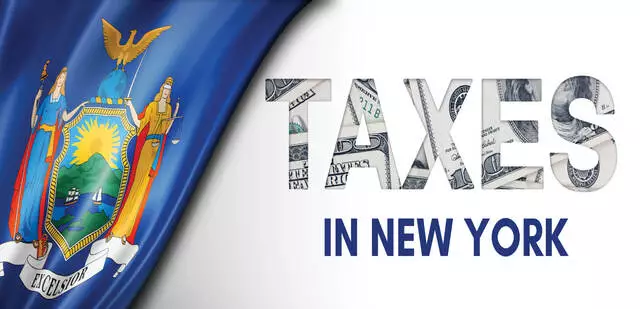
This week: An observation from the middle of the road. Feel free to ignore it and skip directly to the case summaries if you correctly assume I am woefully ill-equipped to provide any sort of political commentary and should stick to tax.
Hi. I’m Chris, and I think I may be a “bothsider.”
As I write this, Comedian/Activist Jon Stewart is being lambasted by some for the content of his first Daily Show episode following a nine-year hiatus. In the episode Mr. Stewart took to task the presumptive presidential candidates from both major parties in a style that has been referred to as “bothsidesism” by certain commentators. Mr. Stewart doesn’t need me to defend him. He’s demonstrated that he can hold his own in pretty much any argument.* And the commendable ratings his return to the Daily Show attracted suggest that maybe there is a significant swath of “bothsider” Americans who: 1. Have healthy senses of humor, priority and proportion; 2. Appreciate when our late night talking heads identify and pillory hypocrites of every ilk biasing only in favor of whomever seems the most awkward or tone-deaf at the moment; and 3. Wonder how the heck the vociferous occupants of both extreme ends of the political spectrum were allowed to hijack political discourse and policy-making away from the occupants of the middle of the spectrum who now find themselves disenfranchised even though they hold an overwhelming majority.
Our Founding Fathers should have been less worried about the tyranny of the majority and more worried about the tyranny of the unrelentingly loud.
There were a decision and three determinations posted on February 15.
Decision
Matter of Whyte Bey (February 7, 2024); Div’s Rep. Amanda Alteri, Esq.; Pet’s Rep pro se; Article 22/Tax protester.
Add to the above rant: “And the DTA ought to have the ability to assess a frivolous petition penalty larger than $500.00.”
Petitioner filed his 2018 and 2019 returns claiming he had no income and requesting a full refund of the tax withheld from the salary payments he received. His position: wages for work are not “income.” This is a popular tune that has been covered by many tax protesters. And frankly, I don’t think that this version added anything new to the others I’ve heard. The Tribunal held that: 1. It was proper for the ALJ to find that Petitioner’s reply was filed late; 2. The position that wages aren’t income is hooey; 3. The DTA didn’t have jurisdiction to address Petitioner’s $6,110,000 (!) Estate Tax refund claim; and 4. The ALJ was correct in sustaining the $500 penalty against Petitioner for filing a frivolous petition.
It seems to me that the Tribunal has it right on almost all counts. But because part of the Job Description for TiNY Editor is “to quibble.” So, while I agree with the ALJ and the Tribunal that Petitioner’s reply was late since the time for filing a reply is measured from the date the Answer is sent and not the date the Answer is received, I might have allowed consideration of the reply since it doesn’t seem to me that the Division should have experienced any prejudice as a result of the six-day delay in its receipt of the reply. Of course, maybe the ALJ and the Tribunal determined that the reply was filled with nothing more than additional tax-protester nonsense that would not have added anything of substance to the record.
Determinations
Matter of Ginsberg (ALJ Chu-Fong, February 8, 2024); Div’s Rep. Amy Siedenstock, Esq.; Pet’s Reps. Casey Johnson, Esq. and Julia Martin, Esq.; Article 22/Brown Field Credits.
This is an interesting case involving how taxpayers calculate the tangible property credit component (TPCC) of the Brownfield Credit. Here’s what the statute says: “The tangible property credit component shall be equal to the applicable percentage of the cost or other basis for federal income tax purposes of tangible personal property and other tangible property, including buildings and structural components of buildings, which constitute qualified tangible property and may include any related party service fee paid…” Tax Law § 21(a)(3). And to be “qualified tangible property” the property must “have a situs on a qualified site in this state.” Tax Law § 21(b)(3)(iv).
Petitioners owned an indirect interest in a partnership that owned real estate in Ossining. The real estate was located in a qualified site, had been remediated under New York’s Brownfield Cleanup Program (BCP), and Petitioners were entitled to their ratable share of the cleanup credits. The issue in this case was the proper calculation of the TPCC base. After the property was remediated, the partnership intended to develop the property by making improvements. But the municipality in which the site was located required the partnership to pay for off-site water main improvements (WMI) before the municipality would issue permits to allow construction of the project. The partnership paid for the WMI, and since the payment was a requirement to be able to construct the Project, the partnership properly capitalized its cost for the WMI ($1,463,634) and included it in the federal tax basis of the project buildings that were constructed.
On audit, the Division determined that the capitalized cost of the WMI was not included in the Project’s TPCC credit base since the water mains were not located on the project property were not located on a qualified site.
The ALJ found that: (1) The Division’s interpretation of the statute was not entitled to deference since the plain language of the statute controlled, and the plain statutory language did not require interpretation through the lens of the Division’s special expertise; (2) Notwithstanding the conclusion in (1), the ALJ found that credit-granting statutes are to be strictly construed against the taxpayer, and that the taxpayer’s interpretation would control only if it was the “only reasonable construction;” and (3) Because the WMI costs were included in the basis of property that was qualified property (i.e. on a certified site), the costs were included in the TPCC base even though the costs incurred were for improvements that were not on a qualified site. In essence, the ALJ found that if the costs are in the basis of the qualified tangible property, they are included in the TPCC base, just like the statute says.
Matter of Shriswami Bapa Corp. (ALJ Behuniak, February 8, 2024); Div’s Rep. Brian Evans, Esq.; Pet’s Rep. Wayne Gavioli, Esq.; Article 20/Cigarette License.
Judge Behuniak determined that it was proper for the Division to deny Petitioner’s application for a cigarette and tobacco products license because one of Petitioner’s responsible officers (the 100% owner) had unpaid New York State tax debts. The Judge cited to a sales tax statute as supporting the Division’s denial. Although the Judge did not “connect the dots” to show why the sales tax licensing rules were applicable in the cigarette tax universe, the Judge is likely correct since Tax Law § 480-a.2(d) provides that “Except as otherwise provided in this section, all the provisions of article twenty-eight of this chapter [the sales tax] relating to the personal liability for the tax, administration, collection and determination of tax, and deposit and disposition of revenue…shall apply to the applications for registration and the fees for filing such applications required by this section…as if such applications were returns required under section eleven hundred thirty-six of this chapter and such filing fees, penalties and interest were taxes required to be paid pursuant to such article twenty-eight, in the same manner and with the same force and effect as if the language of such provisions of such article twenty-eight had been incorporated in full into this article… .”
Matter of Watts (ALJ Russo, February 8, 2024); Div’s Rep. Robert Tompkins, Esq.; Pet’s Rep. pro se; Article 22/Deduction substantiation.
Petitioners owned and operated two Schedule C businesses (ValuePoint and New York Soap and Laundry) involved in providing laundry services. One Petitioner also drove in a Schedule C ride-share business. One Petitioner earned W-2 wages from unrelated employers. For each of the two tax years at issue, the reported W-2 wages were in excess of $200,000. For the same years, the three schedule C business reported, in the aggregate, net losses of approximately $129,000 and $85,000, which were used to offset a portion of the W-2 compensation. On audit, the Division denied the 2018 claimed business losses for lack of substantiation, and the 2019 ValuePoint loss based on a finding that ValuePoint was not an activity engaged in for profit. Following a conciliation conference, the additional 2018 tax liability for Petitioners was adjusted to $5,182.04. The separate audit for the 2019 year resulted in a refund disallowance of $11,810.00. Petitioners challenges both results in this consolidated hearing.
In her 26-plus page determination, Judge Russo found that Petitioners failed to prove the gross receipts for the two laundry businesses, and therefore could not verify the business losses claimed. In addition, she determined that Petitioners had not proven the amount and deductibility of many of the claimed expenses. In many instances the expense documentation was missing or equivocal. And in some instances, the business necessity for the expenses was not shown. Given her findings that Petitioners had proven neither gross revenue nor deductible business expenses, the Judge mooted the issue of whether the ValuePoint business was engaged in for profit.
*On the other hand, let’s not forget that the first time many of us took note of Mr. Stewart was in his supporting role in the 1999 Adam Sandler pic “Big Daddy.”

